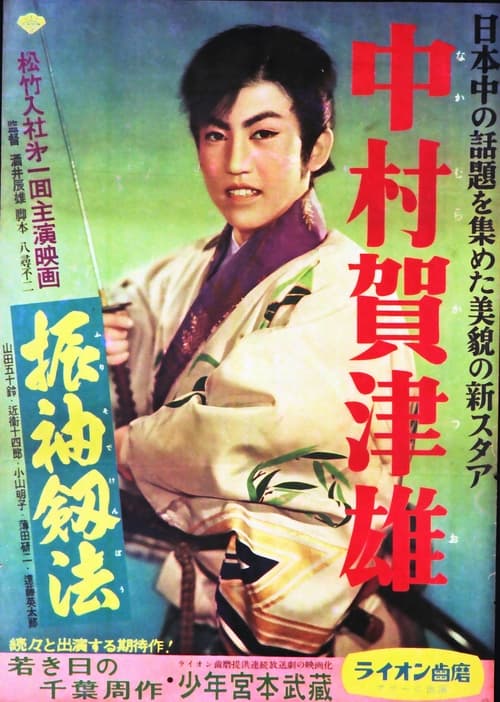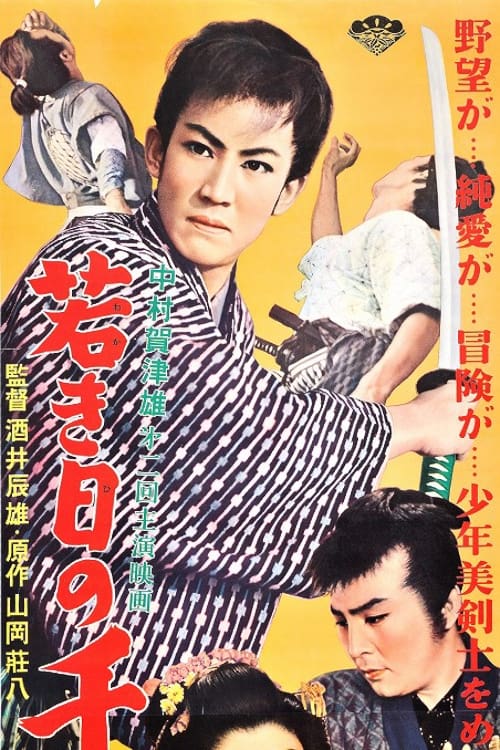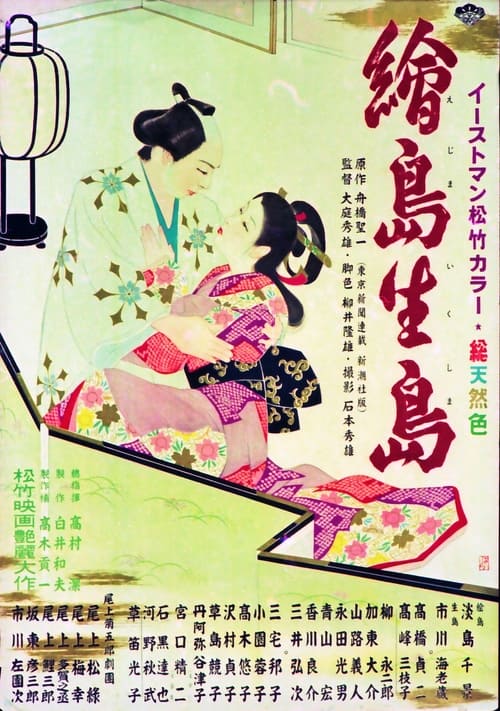高木悠子
Also Known As: not available
Biography: Biography not available
Department: Acting
Place of Birth: Not available
Adult: No
Birthday: Not available
Age: Not available
Gender: Other
Popularity:
Known For:

振袖釼法

Overview: In Marugame Domain of Shikoku, a low-ranking foot soldier named Tagami Genbachi was envied for marrying Tsuji, the most beautiful woman in the domain. However, due to a personal grudge held by Horikawa Gentazaemon, the swordsmanship instructor, Genbachi met an untimely and bitter death through foul means within the precincts of the Hachiman Shrine. Due to the domain's oppressive treatment of those of low status, Tsuji, now with her infant son Botaro, was dispossessed of her home and exiled.
Genres: No genres available
Original Language: ja
Release Date: 1955-07-26
Popularity:

若き日の千葉周作

Overview: Chiba Sōsaku, whose childhood name was Otome, was raised by his father Yukiuemon, the successor of the Hokushin Ittō-ryū style, and his wet nurse in Rikuzen Onikobe, where he early on earned the nickname "Little Tengu of Chiba." One day, Otome heard a rumor that Arao Miyauchi, who once was an internal student at the Chiba family but now ran his own dojo in Onikobe, was spreading false rumors out of resentment for not inheriting the Chiba house—a situation that led to his mother's suicide and his father's abandonment of the sword to become a doctor. Enraged, Otome stormed into the Arao dojo only to be captured and publicly humiliated at Onikobe Pass. However, in his heart, Miyauchi hoped to marry his daughter Nanae to Otome and have him inherit the Chiba family.
Genres: No genres available
Original Language: ja
Release Date: 1955-10-04
Popularity:

Ejima and Ikushima

Overview: This period film is inspired by one of the most notorious scandals to have taken place in Edo-period Japan. The heroine, Ejima, was a lady of the Ooku, the harem of Edo Castle in which the Shogun’s mother, wife and concubines resided, forbidden from contact with any other man except in the presence of the Shogun. The institution played a key role in the Byzantine world of Japanese court politics during the Edo era. In 1714, Lady Ejima was sent to pay her respects at a Buddhist temple in the city, and chose to pay an unauthorised visit to the kabuki theatre – a violation of protocol that was to have tragic consequences.
Genres: Drama
Original Language: ja
Release Date: 1955-10-30
Popularity: